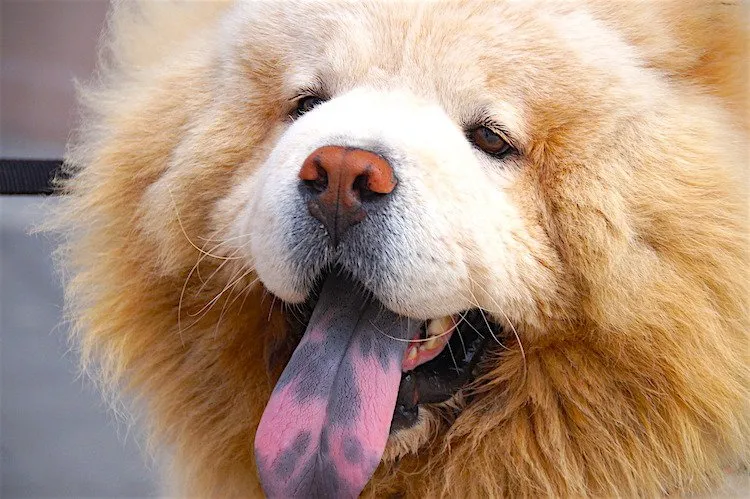Choosing a dog when you have a demanding work schedule can feel like a daunting task. However, many breeds are perfectly suited to adapt to a lifestyle with busy owners. The key lies in understanding a dog’s temperament, energy levels, and independence. This guide will explore some of the top dog breeds that can thrive even when left alone for extended periods, ensuring both your well-being and your canine companion’s happiness.
It’s important to remember that even the most independent breeds require proper training, exercise, and mental stimulation. The following breeds, however, possess traits that make them excellent candidates for those who work long hours, offering companionship without overwhelming demands.
Top Dog Breeds for Busy Professionals
1. Basset Hound
 A Basset Hound puppy looking attentively at the camera with a yellow chew toy in front of it.Basset Hounds are renowned for their self-sufficient nature. They are content to spend a significant portion of their day resting, making them ideal companions for owners with busy schedules. While awake, their curiosity might lead them to explore the house, guided by their keen sense of smell. Despite their independent streak, they are affectionate and enjoy quiet time with their owners in the evening. The American Kennel Club (AKC) describes them as “charming, patient, and low-key,” perfectly encapsulating their suitability for those who work all day.
A Basset Hound puppy looking attentively at the camera with a yellow chew toy in front of it.Basset Hounds are renowned for their self-sufficient nature. They are content to spend a significant portion of their day resting, making them ideal companions for owners with busy schedules. While awake, their curiosity might lead them to explore the house, guided by their keen sense of smell. Despite their independent streak, they are affectionate and enjoy quiet time with their owners in the evening. The American Kennel Club (AKC) describes them as “charming, patient, and low-key,” perfectly encapsulating their suitability for those who work all day.
- Key Traits: Large yet short stature, prone to weight gain if diet isn’t managed, generally good with children and strangers.
- Consideration: Special attention to diet is crucial to prevent back problems exacerbated by their long bodies.
2. Akita
 An Akita dog with a noble expression, standing alert.Originally bred as hunting and guard dogs in Japan, Akitas are fiercely loyal and courageous companions. While not as autonomously independent as Basset Hounds, they can manage being alone for extended periods without destructive behavior. They possess a strong will and a calm demeanor, which contributes to their ability to tolerate solitude. However, consistent training from an early age is essential to ensure they understand acceptable behavior when left unattended.
An Akita dog with a noble expression, standing alert.Originally bred as hunting and guard dogs in Japan, Akitas are fiercely loyal and courageous companions. While not as autonomously independent as Basset Hounds, they can manage being alone for extended periods without destructive behavior. They possess a strong will and a calm demeanor, which contributes to their ability to tolerate solitude. However, consistent training from an early age is essential to ensure they understand acceptable behavior when left unattended.
- Key Traits: Fearless, loyal, can exceed 100 pounds, may be reserved with strangers and other dogs.
- Consideration: Their imposing size requires adequate space, and early socialization is vital.
3. Chow Chow
 A Chow Chow with its distinctive blue tongue and thick fur.Chow Chows are often compared to cats due to their independent and sometimes aloof nature. This makes them surprisingly well-suited for owners who work long hours. They exhibit low separation anxiety and are generally low-maintenance in terms of constant attention. While they may not display the effusive affection of some other breeds, their loyalty to their chosen family is unwavering.
A Chow Chow with its distinctive blue tongue and thick fur.Chow Chows are often compared to cats due to their independent and sometimes aloof nature. This makes them surprisingly well-suited for owners who work long hours. They exhibit low separation anxiety and are generally low-maintenance in terms of constant attention. While they may not display the effusive affection of some other breeds, their loyalty to their chosen family is unwavering.
- Key Traits: Independent, loyal to their owner, not typically friendly with strangers or children, prone to weight gain.
- Consideration: Regular exercise is necessary, and “free feeding” should be avoided. They are not excessive barkers, making them suitable for apartment living.
4. Lhasa Apso
These small but mighty dogs are known for their watchdog tendencies and independent spirit. Lhasa Apsos are content to quietly guard their home while you are at work, rather than succumbing to boredom-induced destruction. Their self-reliance makes them a good choice for those who spend their days away from home.
- Key Traits: Independent, good with children, family, and other dogs, adaptable to various living situations.
- Consideration: They possess a confident demeanor that can make them seem larger than they are.
5. Boston Terrier
Boston Terriers are friendly and generally energetic dogs. With sufficient daily exercise, they can comfortably spend the day alone. Their compact size (around 25 pounds) makes them ideal for smaller living spaces. They are known for being amiable with strangers, children, and other animals, and they adapt well to independent living within a family.
- Key Traits: Easy to train and groom, energetic but can adapt with exercise, known for their well-behaved nature.
- Consideration: Regular exercise, including a couple of long walks or park visits daily, is important to manage their energy.
6. Greyhound
 A Greyhound dog lying down, showcasing its lean build and striped pattern.Despite their reputation as racing dogs, Greyhounds are surprisingly placid and enjoy extensive lounging at home. While they require regular exercise, typically in the form of morning and evening walks, they are content to sleep for much of the day. They can be less independent than some other breeds on this list, and may benefit from the company of another dog or visits from a dog walker.
A Greyhound dog lying down, showcasing its lean build and striped pattern.Despite their reputation as racing dogs, Greyhounds are surprisingly placid and enjoy extensive lounging at home. While they require regular exercise, typically in the form of morning and evening walks, they are content to sleep for much of the day. They can be less independent than some other breeds on this list, and may benefit from the company of another dog or visits from a dog walker.
- Key Traits: Prone to weight gain, require coats in cold weather, low grooming needs, generally healthy.
- Consideration: Daily exercise is essential. They are known for being friendly towards people and other dogs. You can learn more about the average cost of basset hound puppy to budget for a new companion.
7. Chinese Shar-Pei
The unique appearance of the Chinese Shar-Pei is matched by their loyal and watchful nature. While not overly effusive with strangers, they form strong bonds with their owners and often prefer smaller group settings where they can observe. Their low energy levels mean they are content to relax at home during the day, provided they receive adequate exercise when you are present.
- Key Traits: Smart, require early training, need regular grooming due to skin folds, calmer disposition.
- Consideration: Their distinctive wrinkles and noses can sometimes lead to breathing issues during strenuous exercise.
8. Bullmastiff
 A large Bullmastiff dog sitting calmly.Bullmastiffs are impressive in size, often reaching up to 130 pounds. Despite their imposing presence, they possess a calm, loving, and patient disposition, making them generally tolerant of strangers. They do not require extensive exercise and are perfectly happy lounging at home, making them excellent choices for individuals with busy work lives. They are naturally protective of their families, though early training is recommended due to their size.
A large Bullmastiff dog sitting calmly.Bullmastiffs are impressive in size, often reaching up to 130 pounds. Despite their imposing presence, they possess a calm, loving, and patient disposition, making them generally tolerant of strangers. They do not require extensive exercise and are perfectly happy lounging at home, making them excellent choices for individuals with busy work lives. They are naturally protective of their families, though early training is recommended due to their size.
- Key Traits: Patient and excellent with children, adaptable to small homes or apartments, independent yet protective.
- Consideration: Training should begin early to manage their strength.
9. Chihuahua
On the smaller end of the spectrum, Chihuahuas are intelligent, playful, and trainable with moderate energy levels. Proper early training and socialization are crucial to prevent potential behavioral issues. They require regular exercise to maintain a healthy weight, making them well-suited for owners who can incorporate short walks before and after work.
- Key Traits: Easy to groom and maintain, responsive to training, can be happy in pairs.
- Consideration: Their small size makes them prone to weight gain, so regular exercise is important.
10. French Bulldog
 Several young French Bulldog puppies playing together.French Bulldogs are exceptionally popular, especially in urban environments, due to their suitability for apartment living and their ability to tolerate being left alone. They are friendly, intelligent, loyal, and generally easy to care for. While playful, their energy levels are moderate, and they are just as happy napping as they are engaging in activity.
Several young French Bulldog puppies playing together.French Bulldogs are exceptionally popular, especially in urban environments, due to their suitability for apartment living and their ability to tolerate being left alone. They are friendly, intelligent, loyal, and generally easy to care for. While playful, their energy levels are moderate, and they are just as happy napping as they are engaging in activity.
- Key Traits: Well-suited for small spaces, content being alone, friendly, smart, loyal, easy to care for.
- Consideration: Due to their short noses, they can experience breathing difficulties with strenuous exercise, so moderate activity is sufficient.
Ensuring Your Dog’s Well-being While You’re Away
Even with breeds known for their independence, it’s crucial to plan for their needs. Leaving a dog alone for extended periods, such as 12 hours or overnight, can be challenging for their physical and emotional well-being.
How Long is Too Long?
Veterinarians often recommend allowing dogs to relieve themselves 3-5 times per day, with no more than 6 hours between potty breaks for adult dogs. If your workday exceeds this, consider hiring a trusted dog walker to provide mid-day relief and a break.
Understanding Separation Anxiety
Dogs, like humans, can experience loneliness. Separation anxiety is a common indicator that a dog is unhappy being left alone. Signs include inappropriate urination or defecation, excessive barking or whining, and destructive behavior. If you notice any of these, it’s essential to address the underlying issue through training and potentially consulting a professional.
Crate Training Considerations
Crate training is an effective tool, especially for puppies, but it should not be used for full-day confinement. Dogs need ample space to move, stretch, and express natural behaviors. If a dog struggles to behave outside a crate, it may indicate a lack of exercise or underlying anxiety that requires attention. Limit crate time to a few hours at a time to allow for movement.
Choosing the right dog breed for your lifestyle is a significant commitment. By selecting a breed that aligns with your working schedule and providing them with adequate care, training, and attention when you are home, you can enjoy the profound companionship a dog offers. Always prioritize your dog’s best interests to ensure a happy and healthy life together.
